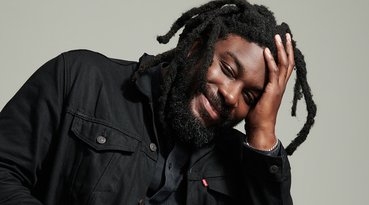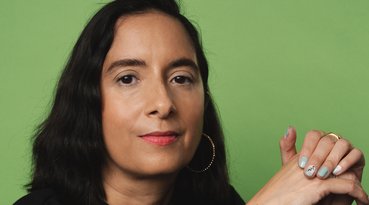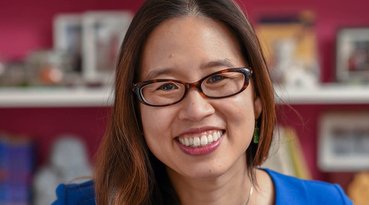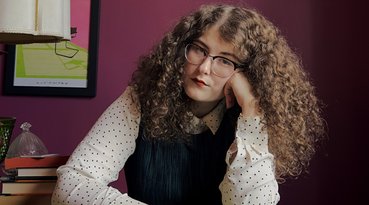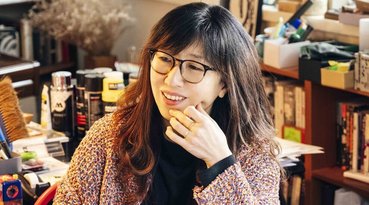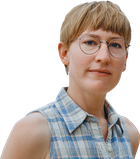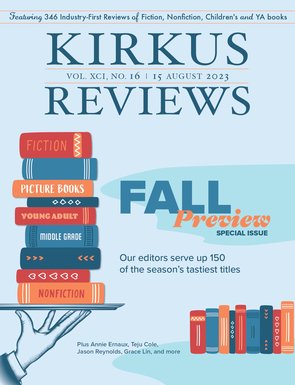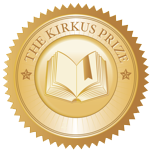Like one of the writer characters in her twisty new thriller, Jesse Q. Sutanto has had a prolific and genre-crossing start to her career since her debut novel, Dial A for Aunties, was published in 2021. Sutanto sets her seventh release, I’m Not Done With You Yet (Berkley, Aug. 22), in a world she knows well—the publishing industry—to craft a page-turner about two writers. When Jane Morgan sees her former Oxford classmate and best friend, Thalia Ashcraft, hit the bestseller list with her new novel, she will do anything to reconnect. The book follows a trail of Jane and Thalia’s secrets, alternating between their inseparable bond at the MFA program and their present day as working writers. After publishing cozy mysteries and young adult romance, this thriller may feel like a departure for Sutanto, but it still has the voice and humor that have made her prior work a success.
In a conversation over Zoom from her home in Jakarta, Sutanto spoke to us about writing about writers, where she draws her inspiration, and the rise of women-driven thrillers. The conversation has been edited for length and clarity.
This book is a little bit of a darker turn as your first true adult thriller. What inspired you to lean into suspense for this project?
Suspense, thrillers have always been my bread and butter. It’s my favorite genre to read, especially adult suspense. So I always wanted to write one, but for some reason, I just never dared to. And it wasn’t until my really good friend, Laurie Elizabeth Flynn, who wrote The Girls Are All So Nice Here, encouraged me to write one that I was like, OK, I’ll give it a go. She was cheerleading for me the entire time. That’s why the book is dedicated to her, because it just wouldn’t have happened without her.
The book’s central friendship, between Jane and Thalia, is marked by Jane’s obsession with Thalia. Maybe it’s purely platonic, maybe it’s erotic, maybe it’s something else, but it keeps coming back to this idea that Thalia is Jane’s muse. Do you have a muse?
I would say no, I don’t have a muse the way that Jane does. I mostly get my ideas from devouring all sorts of content, like TV shows or reading books, and then either thinking, Oh my God, this was so fun. I wish I could do something with the same vibes, or thinking, This wasn’t well executed. I want to explore it in a way that this didn’t do. I definitely don’t have an individual who is a muse. If you did, then just imagine how much pressure that brings to that relationship where you’re like, I can’t ever lose this friendship.
While this book was darker, it was still very funny, and it felt like it was really fun to write. What was one of the most fun parts of writing this book?
I came up with the twist before I came up with anything else. So the whole time that I was outlining it, and then I was writing it, I had that twist in mind. When I finally got to that reveal, I thought, finally, and I was writing that chapter with this intense look of excitement the whole time.
Since you’ve now written multiple books about murder, I’m sure that your search history is very interesting when you’re researching and writing. Do you have any funny highlights from your search history for the writing and research of this book?
I was obviously looking for ways to kill someone that you could potentially get away with. So I was looking up all these different poisons, like ricin. I feel like suspense writers must be on a watchlist where the FBI is following them until they’re like, Oh, it’s just some nerdy writer. Forget it, it’s fine. I was looking at what they actually look for when they do an autopsy. Interestingly, I found out that usually autopsies are not as cool and thorough as they make it seem on CSI. They actually have quite a limited number of things that they test for, because they have limited resources. So unless they find traces of a very specific poison, they wouldn’t necessarily test for it. They can’t test for everything. And so I was like, Oh, my God, it’s actually a lot easier to get away with poisoning than CSI makes it look.
Some of the fun elements of the book are these big set pieces set in the world of professional writing, like conferences and writers’ retreats. Why did you decide to write about writers, and what did you hope to show about the publishing world?
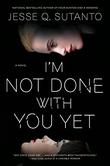 The truth is that I am lazy! I like to have professions that I’m already familiar with. For example, I used to work as a wedding photographer, and that’s why in Dial A for Aunties my main character is a wedding photographer. When I was writing this book, I thought, I know a lot about writers. The thing about publishing is that it’s so quietly competitive. If you’re not in publishing, you probably wouldn’t be aware of the pettiness or competition that goes on behind the scenes. I realized it could be really fun using things like writing retreats; there are a lot of hierarchies and cliques. Especially as someone who isn’t based in the United States, I always have such FOMO, because I see writers going on retreats or going to cons and book festivals, and I’m always wondering, When can I go? So that emotion of feeling left out is already there, and it was easy for me to tap into that, as someone who feels like an outsider.
The truth is that I am lazy! I like to have professions that I’m already familiar with. For example, I used to work as a wedding photographer, and that’s why in Dial A for Aunties my main character is a wedding photographer. When I was writing this book, I thought, I know a lot about writers. The thing about publishing is that it’s so quietly competitive. If you’re not in publishing, you probably wouldn’t be aware of the pettiness or competition that goes on behind the scenes. I realized it could be really fun using things like writing retreats; there are a lot of hierarchies and cliques. Especially as someone who isn’t based in the United States, I always have such FOMO, because I see writers going on retreats or going to cons and book festivals, and I’m always wondering, When can I go? So that emotion of feeling left out is already there, and it was easy for me to tap into that, as someone who feels like an outsider.
The women in this book, and your other books, hold a lot of the power. How do you like to present these women characters in these stories about murder and suspense?
Up until around 10 years ago, I hated reading suspense thrillers, because it was so male dominated. The question wasn’t even, did someone get raped, brutally and graphically, and then killed? The question was, who was raped and who did the rape? I just got so sick of it. Women were getting “fridged” left and right. Then Gillian Flynn came along with Gone Girl, and she created a whole subgenre of psychological suspense. All of a sudden, I was like, I can read this genre now. When I started writing suspense, I guess I had an agenda to even the score. I wanted it to be that the female characters are using the male characters the way that female characters have been used in suspense thrillers, as victims to further the plot or as pieces that they just move freely around the board without much care for motivations or character development.
D. Arthur is a writer in Brooklyn.




























